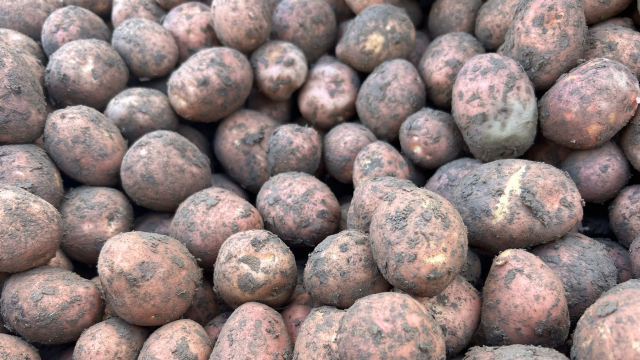At the end of February and early March, potato-grower warehouses are undergoing an active sorting job to prepare the seed for the new season in good time.
“We usually start sorting the seed at the end of February, and now there is a period when growers are evaluating the situation of what kind of seed they need. They are subject to the rules governing the eradication of quarantine diseases and are obliged by law to plant at least 10% of the total area with certified seed,” said the agrarian service director of Orkla Confectionery & Snacks Ltd., agronomist Ilgvars Krūmiņš.
Orkla cultivates potatoes on 75 hectares.
Last year's experience has caused some growers to think about whether to continue their business this year or whether to reduce or increase the areas to be sown.
“As yields were bad, there's a part that really throws in the towel because potatoes are a very labor-intensive culture. There are also many who take it up,” Aiga Kraukle, Chair of the Board of the Union of Potato Growers and Processors, said.
This year, commercial potato growers will have more available plant protection products to fight the pest spread in Latvia – the Colorado beetle. Private owners, on the other hand, will have to deal with the bug themselves since such chemicals will no longer be sold. Potato yields are also affected by diseases, so now is a crucial time for growers to assess the quality of seed.
Whether potatoes will become more expensive this year, experts aren't sure yet. “Here come the annual factors for the harvest price that farmers feel. So the weather, maybe some kind of drought, flooding, or anything else that can't be predicted. But the price will probably not change,” said Uldis Jaunzems, Chairman of the Board of the Latvian Association of Fruit and Vegetable Traders.
Last fall, potato producers received 20 cents per kilogram without VAT, which is twice as much compared with fall 2020.




























